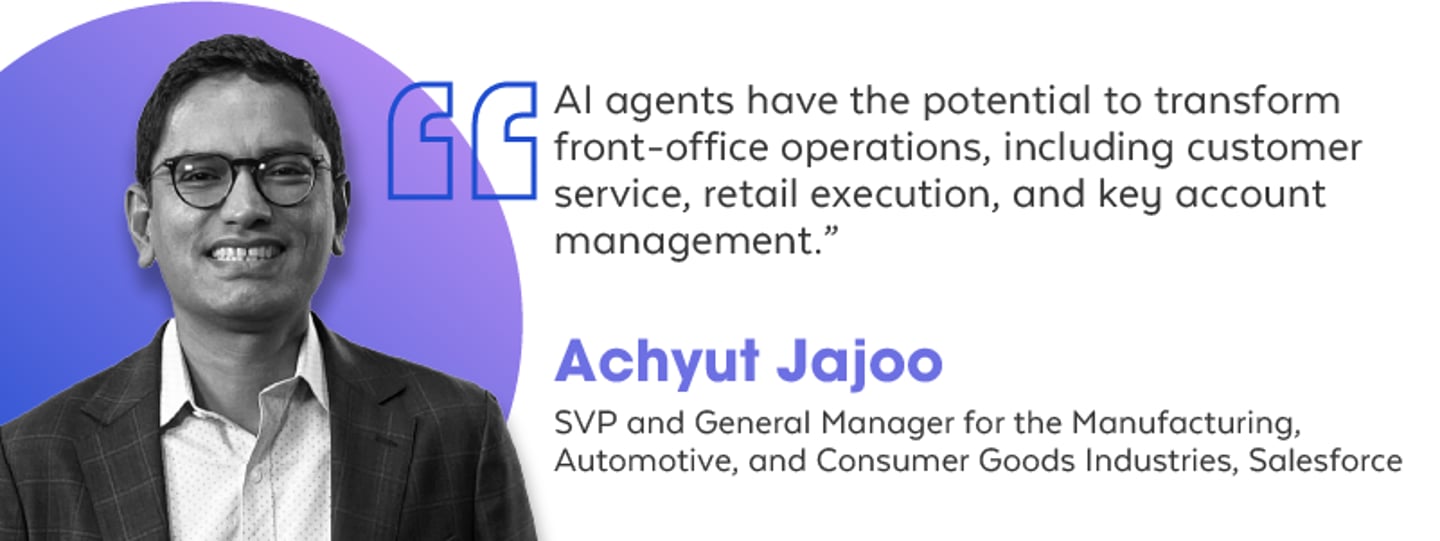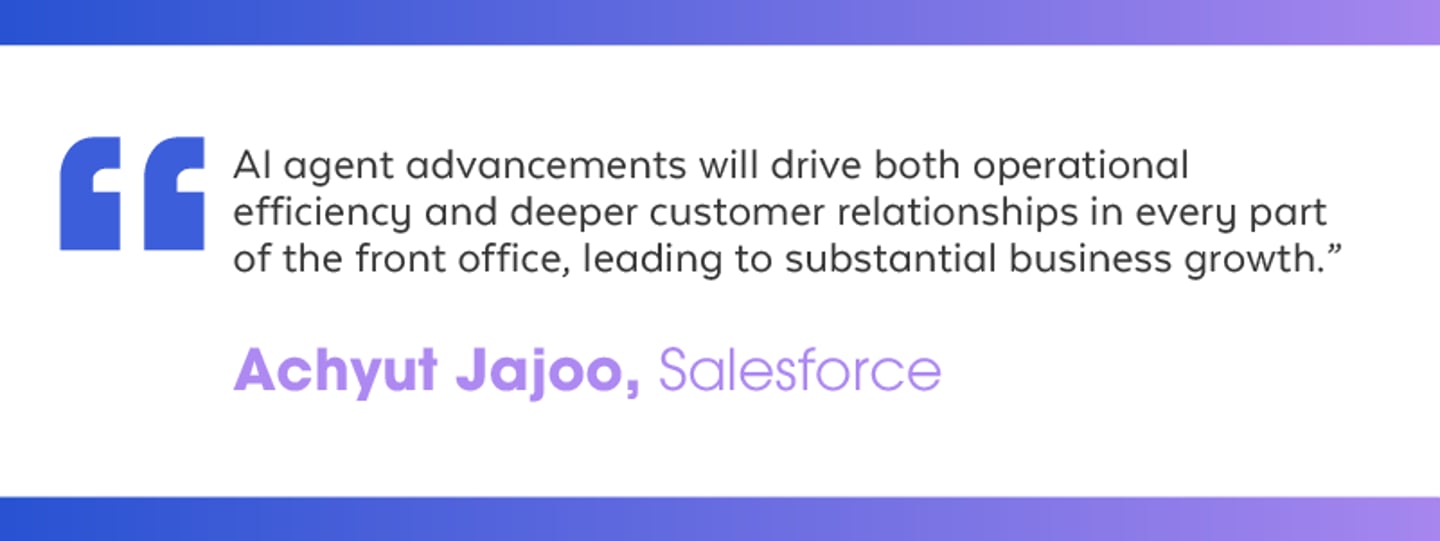The Path to Scalable AI Agent Adoption in Consumer Goods
Agentic AI has the potential to significantly enhance efficiencies for consumer goods organizations, far beyond even what traditional artificial intelligence can provide. Its path to implementation, however, is rarely straightforward.
Achyut Jajoo, SVP and general manager for the manufacturing, automotive and consumer goods industries at Salesforce, shared insight on what organizations can expect, where innovation is already occurring and how they can set themselves up for success.
CGT: What are the key steps an organization should take when implementing AI agents to ensure successful integration across departments?
Jajoo: Successful Agentic AI implementation begins with a clear vision and defined objectives aligned with strategic priorities. Then assess your tech stack and data readiness. It’s important to have a strong application layer to both generate good data and provide an engagement layer for your humans to interact with AI. Always empower your people by continually rallying stakeholders, offering comprehensive training and asking for feedback.
For deployment, target simple, repetitive tasks for rapid, tangible successes, building momentum and inspiring adoption. Champion robust data governance and security protocols to ensure trust. Finally, cultivate a culture of continuous learning, adapting strategy and deployment as technology evolves.
CGT: Can you share some use cases for leveraging these technologies to improve operational efficiency?
Jajoo: AI agents have the potential to transform front-office operations, including customer service, retail execution and key account management. In customer service, AI handles routine inquiries, offers 24/7 support, escalates complex issues and automates proactive outreach, boosting satisfaction and revenue.
For retail execution, AI optimizes product placement and inventory using sales and consumer data, even guided selling for long-tail accounts. In key account management, AI provides insights into preferences and trends, automates tasks like account plan creation and claims management, freeing teams for high-value activities.
CGT: What are some business challenges companies have encountered, and how have AI agents helped to solve them?
Jajoo: Consumer goods companies continue to face significant challenges, such as handling an overwhelming number of customer service inquiries. AI agents are effectively streamlining this process by delivering swift, precise responses to boost customer satisfaction, but allow human teams to tackle intricate problems. Our customers’ retail execution teams are sifting through extensive data to prioritize tasks at each account. AI agents are now analyzing this data, providing clear, actionable insights.
Similarly, key account managers previously grappled with manual data analysis to gauge account performance and promotional effectiveness. AI has automated this, offering real-time insights and metrics that empower them to make data-driven, strategic decisions.
Many companies are already reaping the benefits. Fisher & Paykel, for example, uses AI agents to handle most inquiries, making support 50% faster and more effective.
CGT: How do you see AI agents transforming the consumer goods business in the next five years?
Jajoo: We expect customer satisfaction scores to soar as asset and warranty management gets smarter with automated monitoring and outreach. We'll see retail execution teams benefit from intelligent route optimization, inventory management and order recommendations. AI will also revolutionize trade promotion optimization by analyzing vast datasets to identify the most effective promotions, ensuring maximum ROI.
Furthermore, post-promotion activities such as claims management will see reduced administrative burdens and greater accuracy.
There are many more applications that are sure to arise across supply chain management, sustainability and product development as well.
Ultimately, AI agent advancements will drive both operational efficiency and deeper customer relationships in every part of the front office, leading to substantial business growth.






